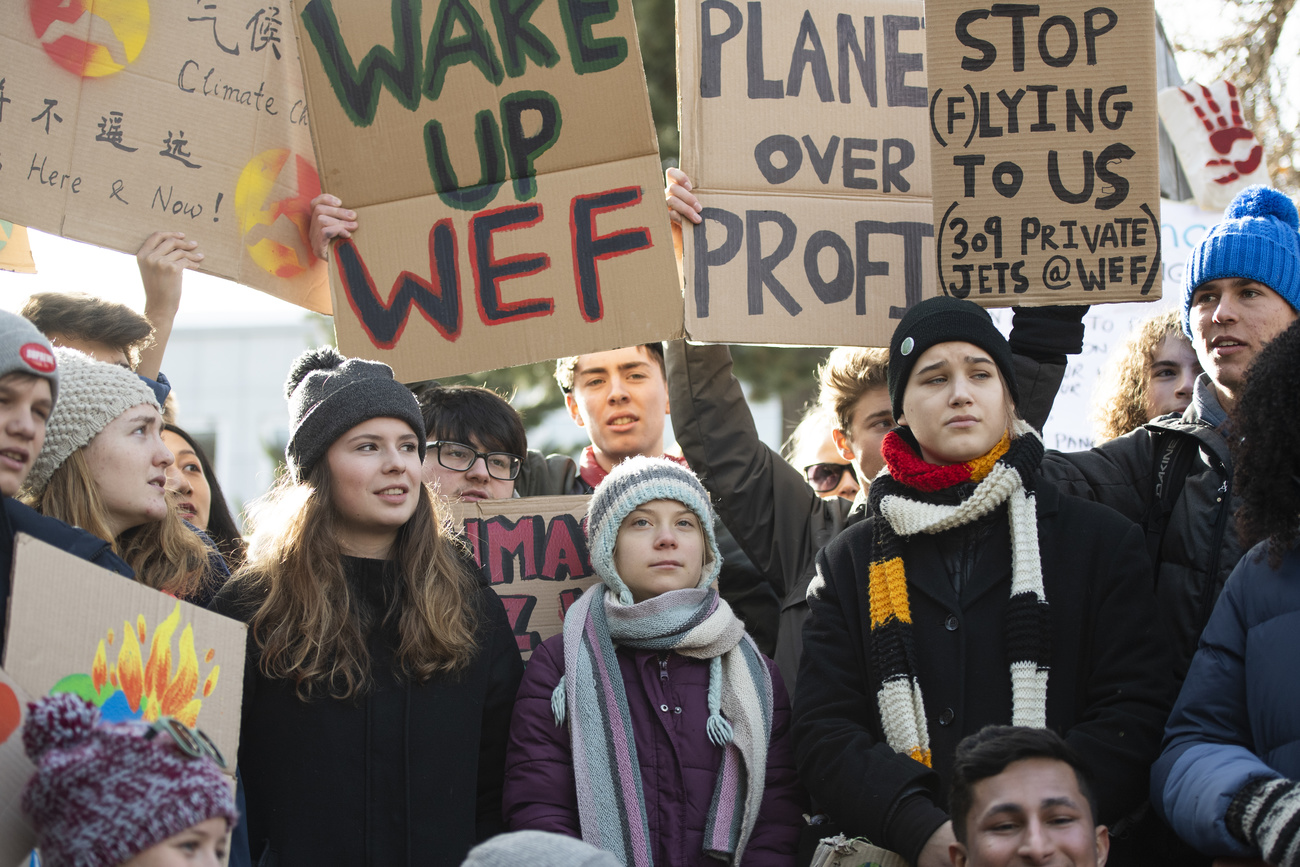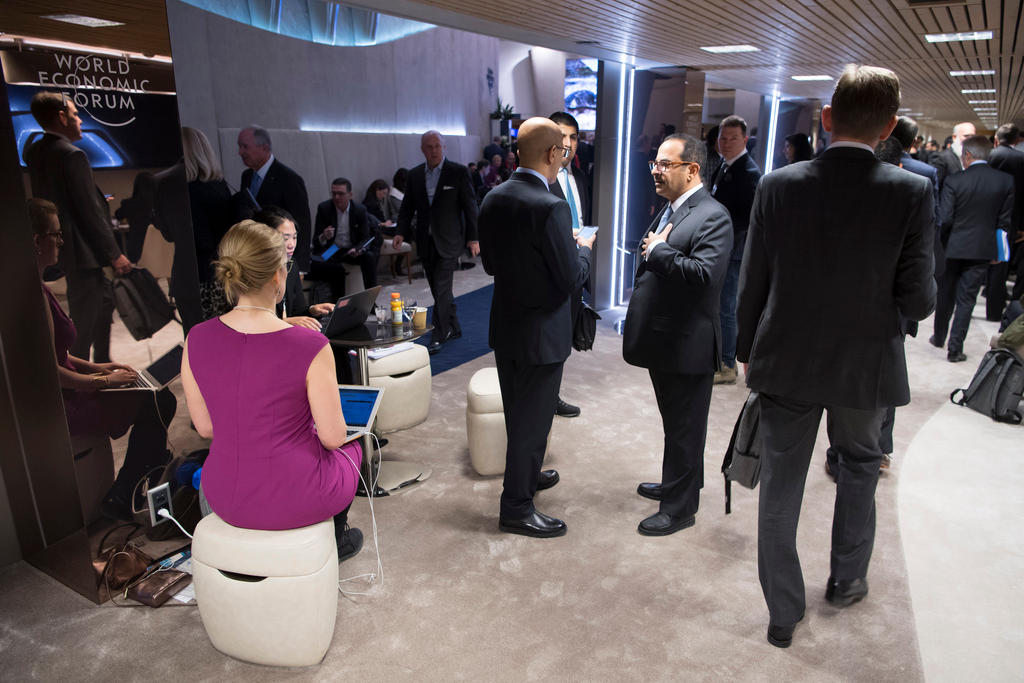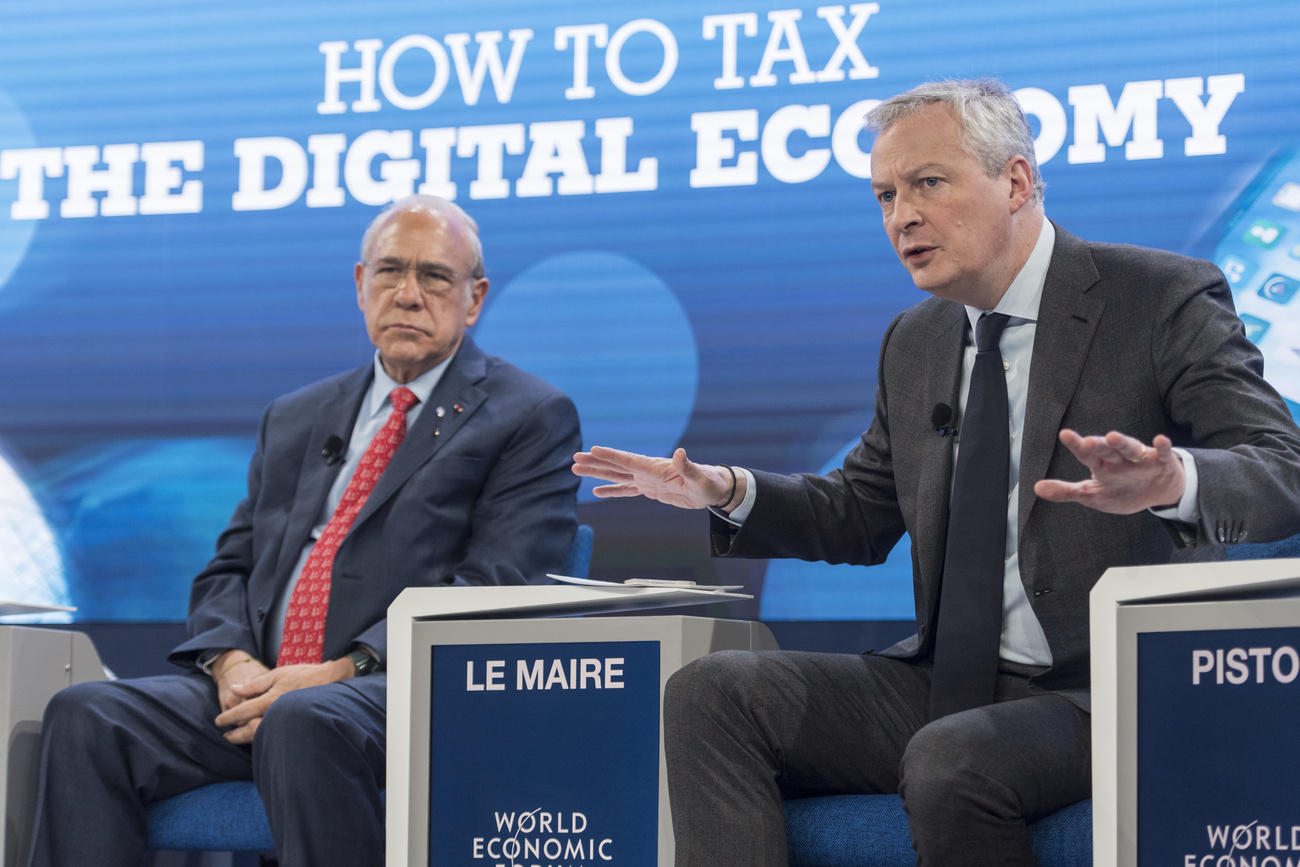
Can the WEF stop de-globalisation?

The forces pushing against the World Economic Forum’s view of the global economic order are gaining ground. Is this the end of the WEF as we know it?
The political and economic titans gathering in the Swiss Alpine resort of Davos this week confront an unexpectedly different landscape than at their last in-person meeting in January 2020. Breaking with tradition, the World Economic Forum (WEF) is meeting at the height of spring instead of winter. But while Switzerland enjoys milder temperatures this time of year, Russia’s full-scale assault on Ukraine has cast a cloud over the 2022 event, now held under the banner “History at a Turning Point”.
“This Annual Meeting happens against the most complex geopolitical and geo-economic situation in decades,” observed WEF president Borge Brende during a news conference Wednesday. “We’ll have to focus even more on impact and outcomes.”
It won’t be a business-as-usual WEF this year. Russian companies or political elites were not invited. Instead, Ukraine’s embattled leader Volodomyr Zelensky will deliver the keynote address virtually and is sending a sizeable delegation to Davos. Facing Covid-related lockdowns in its two largest cities, China is only sending its climate change envoy, Xie Zhenhua. The top guns in the US delegation are special advisor on climate John Kerry and former vice-president and environmental champion Al Gore. This is in sharp contrast to when the world’s largest economies were sending if not their head of state, at least a large delegation comprised of senior members of government.
More
These absences don’t just leave gaping holes in the Davos programme. They also reflect a growing disconnect between WEF and global reality, analysts and observers say. Instead of “global citizens” gathering to talk about global problems in Davos, countries are retreating into their own corners – a trend amplified by the Covid pandemic and the economic fallout of Russia’s invasion of Ukraine; two cataclysmic events that no one foresaw at the last WEF encounter.
“This is a completely different world,” says David Bach, a political economy expert at the IMD Business School. “It’s one of rival blocs and regions with far reaching implications, not just for international politics and the global economy, but for business strategy.”
The globalisation torchbearer
When the WEF started back in the 1970s, the Cold War divided the world along ideological lines. The annual meeting in Davos became one of the only forums to bring competing worldviews together. It was built on what the WEF calls the “Davos Spirit” – the “concept of multistakeholder participation, collaboration and congenial exchange”.
As the liberal economic order took over, the WEF became synonymous with the open trade and economic efficiencies that defined the globalisation of the 1980s and 90s. This led to huge economics gains until the beginning of the 2000s and helped bring millions out of poverty as China and former Soviet states became integrated into the global economy.
“The massive globalisation that we saw in terms of global trade when China joined the world trade system largely leveled off around a decade ago,” says David Dorn, professor of globalisation and labor markets at the University of Zurich.
As the euphoria over globalisation’s gains have died down, the forces against it have become louder. The widening gap between rich and poor caused resentment and anger. Outsourcing led to exploitation of workers in places with few labour rights protections. Faster and more complex supply chains created irreversible environmental damage. Violent protests erupted against the WEF and its billionaires club at the turn of the century as it became emblematic of the problems with globalisation.
The forum tried to address concerns over the years by inviting contrarian views into its inner circle and adding NGO representatives to the mix of CEOs. It organised WEF events in other parts of the world from Dubai to Cape Town and Tianjin. It reframed the capitalist narrative to be more inclusive and oriented business helping solving societal problems with sessions focused on averting a food crisis, ending modern slavery and tackling climate change.
They created the Open ForumExternal link for the public – at least those who could be in Davos – to be a part of the discussion on issues.
Meanwhile, economies became more interconnected and dependent on each other as supply chains became longer and more complex aided by huge technological advances.
As global companies that could zig zag goods across the world became more powerful, governments became weaker. The national citizen gave way to the global consumer, wrote political scientist Samuel Huntington in a 2004 essayExternal link on the “Denationalisation of the American Elite”. What Huntington called ‘Davos Men’, ‘gold-collar workers’ or . . . ‘cosmocrats’ – an emerging class empowered by global connectiveness – were seen as the problem.
The backlash to globalisation didn’t recede and instead a counter movement took hold, rooted in populist and nationalist rhetoric.
“There has been this feeling that part of Wall Street, Hollywood, and cosmopolitan elite are ruling. Leaders like Donald Trump and Marine le Pen in France saw that people were feeling left out,” says Daniel Warner, a Swiss-American political scientist and former Deputy to the Director of the Geneva Graduate Institute.

More
Closing the gender gap: a Swiss view at WEF
Breaking point
The backlash proved mild relative to what was to come. War in Ukraine and the coronavirus pandemic are the latest crises to throw into question the merits of WEF’s view of the global economic order.
The last time a group of elites gathered in Davos was just a month before the World Health Organization (WHO) declared the coronavirus outbreak a pandemic. Only murmurs of a health crisis in Wuhan could be heard in the halls of the Davos Congress Centre. The pandemic upended lives in nearly every country and caused the WEF to cancel its annual gathering in Davos two years in a row. This marked the only time in its more than 50-year history that world events have driven the WEF to scrap its annual gathering.
When the agenda was proposed in anticipation of a January meeting in Davos, the prospect of a Russian invasion of Ukraine still appeared unlikely. Adapting to the dramatic change in circumstances, WEF changed the theme of its 2022 event from “Working Together, Restoring Trust” to “History at a Turning Point: Government Policies and Business Strategies”.
“What we’re seeing is a reverse globalisation,” says Warner. “We are seeing a return to aggressive nationalism in certain countries, from the Gilets Jaunes [France’s Yellow Vests movement] and to a certain extent [Russian President Vladimir Putin]. People increasingly feel left out and have no emotional attachment to globalisation.”
The supply of basic commodities from medicine to wheat and oil have been disrupted, exacerbating existing inequalities. Despite pledges for Covid vaccines and treatments to be global common goods, countries quickly outbid each other to get first dibs on vaccines. This didn’t hit the billionaires but rather millions of people who struggled to get accessExternal link to affordable Covid vaccines and treatments.
Since the start of the Ukraine war, two of the world’s largest grain exporters have been destabilised by sanctions and fighting. The World Food Programme estimates the war and the impact on food and fuel prices will push 47 million people to the brink of famine.
Confronted by these crises, as well as the climate emergency, many countries have turned inwards, to defend their own supplies and people by erecting export bans and buffering domestic industries.
“The history of globalisation has always been a sort of tug-of-war between those who favor a greater integration and openness and those who opposed it; as the history of free trade has,” notes Bach. “Right now, the forces pushing deglobalisation are clearly stronger because those forces aren’t just demagogues and populists… The supply chain disruptions brought by the pandemic and now brought by the war are absolutely real.”
Doubts among the winners
Even the winners of globalisation – multinational companies – are finding themselves at odds with the globalisation narrative. They are under more pressure from employees, customers, governments, and even their own shareholders to take sides as geopolitics increasingly divides the world into a few major trading blocs.
“The option that a multinational can go to country X or to country Y without any questions is over,” said Warner. Companies will face more cases like Russia and China where doing business carries a heavy price. Christoph Franz, chairman of the board of Swiss pharma firm Roche, told SWI that the company is seeing more localisation of value creation and that he expects companies will take a more explicit look at the risks of globalisation and “attribute different values to supply chain security going forward”.
For CEOs, navigating sanctions and supply chain disruptions aren’t just headaches. They have called into question many of the basic assumptions that have guided business decisions for the past few decades. To do business in the second largest economy in the world, companies are increasingly expected to play along with Xi Jinping’s plans to decouple China from the West, become self-sufficient and build a China-centric economic order.
“Many policymakers and some business leaders are siding with the deglobalisation camp because it’s either politically expedient or economically beneficial for them,” says Bach.
Much of the world wants a new narrative with new paradigms, and this isn’t just coming from anti-globalist campaigners. Countries like China want to redefine how the world works. Companies with customers and employees everywhere are looking for a new narrative themselves.
“The image of a global village is gone,” says Warner. “This ideal of bringing businesses and politicians together is seen as elitist by many and thinking that these people could solve the problem and bring peace is being thrown into question.”
WEF at a turning point
With the Davos Spirit under threat, can WEF solve globalisation’s problems?
“The WEF does have really valuable things to offer. But if they remain this exclusive club of very rich people who most normal people don’t understand and think they are to blame for many problems, they will continue to lose support,” says Gretta Fenner, the managing director of the Basel Institute on Governance.
“You can talk all you want but where is the measurable action and where is the accountability for all the statements and commitments that are made by leaders at the WEF?”

More
Trust is what makes Davos work, but it is also its biggest problem
Despite claims to be more inclusive, membership in WEF can cost up to $600,000 a year and its annual meeting remains an invite-only affair guarded with heavy security. CEOs fly in on their private jets despite making pledges to curb climate change. Many of the key meetings take place off-the-record and behind closed doors, and the badges are still colour-coded to signify your pecking order.
But without the big names and powers attracting attention this time, there could be a chance for more diverse voices and perspectives to get more airtime. GreeceExternal link announced that it will have a Greek House at Davos for the first time, and India has been promoting several events in the lead up to WEF week. The African continent will have its highest representation to date, with seven heads of state and scores of ministers expected at the elite event.
“Given that the world is in a bit of a bind on a number of fronts, the idea of bringing some people together and having them wrestle with some of those questions strikes me as a good one,” says Bach.
“That doesn’t mean that I have dramatically high expectations that we’ll come out of it with the solutions to the most pressing problems facing humanity, but I do think that there is a place for in-person gatherings… [and] that concerted effort by those who tend to attend WEF can make a difference.”

In compliance with the JTI standards
More: SWI swissinfo.ch certified by the Journalism Trust Initiative































You can find an overview of ongoing debates with our journalists here . Please join us!
If you want to start a conversation about a topic raised in this article or want to report factual errors, email us at english@swissinfo.ch.